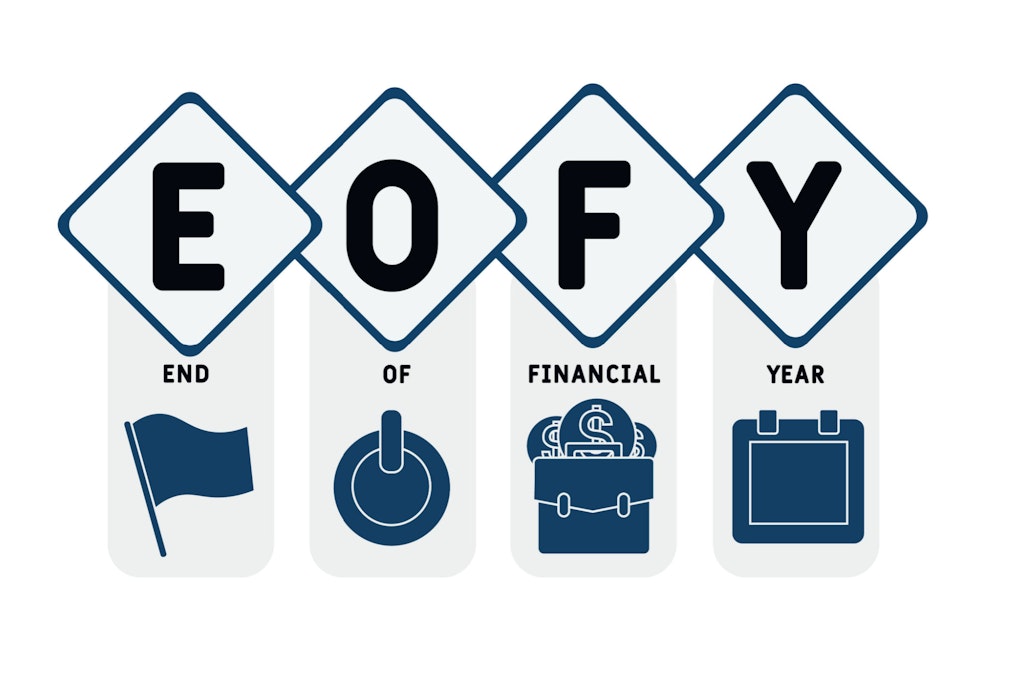How to utilise your EOFY budget
Last updated on 31 May 2023

With the end of the financial year (EOFY) just around the corner, it’s time to consider where you can use up the last of your budget!
Not all businesses have to use up their budget before EOFY, but it can be beneficial to use set expenditure budgets rather than letting the funds roll over into the next financial year. You could find that money ends up elsewhere if budgets are reallocated and you might feel as though you’ve missed out.
Smart and responsible spending needs to be at the forefront of your mind though. Yes, you now have the opportunity to spend – and there are EOFY sales to pounce on – but you only want to spend if you have to. Even the lure of tax-deductible expenses shouldn’t be your main focus as you want to only invest in something you and your staff will use.
So, where should you look to utilise your EOFY budget? Let’s run through the options.
Employee training and development courses
There’s always time to upskill staff in aged care and with countless education and training courses on offer, you can really take advantage of them at tax time. How? You may qualify for the Government’s Small Business Skills and Training Boost if you’re a provider classified as a small business (aggregated annual turnover of less than $50 million).
Announced last year and applicable until June 30, 2024, the Small Business Skills and Training Boost allows eligible businesses to deduct an additional 20% of the expenditure incurred when providing external training courses to staff.
Additionally, have a chat with relevant department heads to see if they’re eyeing any courses as you should find courses at a discounted price through EOFY sales.
Software and technology upgrades
Speaking of EOFY discounts, computers, tablets, laptops and accessories will all be heavily discounted. Your IT team will no doubt have a number of gadgets on their wishlist to benefit operations, whether it’s new computers for administration or faster tablets for direct care staff.
Don’t forget the office furniture or whitegoods, either, as they’ll be discounted heavily. And even though you may not have the option of claiming them on tax like you do work equipment, it’s still worth upgrading the office or staff rooms if there’s a leftover budget you want to spend.
Superannuation payments
Depending on your payment schedule for superannuation, you could try to squeeze this quarter’s payments in by June 30 to claim the deduction with this financial year’s tax return. Otherwise, you have until July 28 to make payments for the April 1 – June 30 quarterly period, and any tax deduction benefits will roll over into the next financial year.
Keep in mind that the super guarantee (SG) rate also increases from 10.5% to 11% from July 1, 2023, so you could be dealing with variable SG rates for staff superannuation.
Purchase new assets
The 2022-23 financial year is expected to be the last for Temporary full expensing, in which eligible businesses can claim an immediate deduction for the business portion of an asset’s cost in the first year it’s used or installed. Assets include machinery, appliances and vehicles that are required for business purposes, and importantly, they have to be ready or installed before June 30, 2023.
Of course, there could be limits to what assets you can purchase with the remaining budget. But if you have any pending purchases or investments that are close to being finalised, now is the time to push on and get it done. Second-hand assets are also eligible.
Finish renovations
Alternatively, you can claim the cost of improving existing eligible assets by June 30, 2023, under Temporary full expensing. This could be the motivation you need to complete any pending renovations! The cost could include building materials, hiring contractors or servicing machinery directly related to your business – expenses that could easily come from your remaining budget.
Save for next year
If all else fails and you don’t want to pull the trigger on last-minute expenses, save your leftover budget and utilise the surplus for the next financial year. You can either recommit the funds to the same department or reallocate elsewhere if there has been a major shift in spending over the past 12 months.